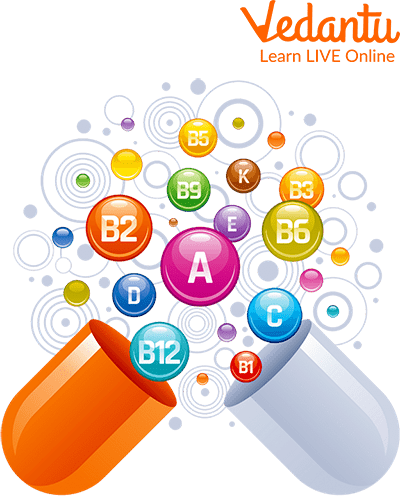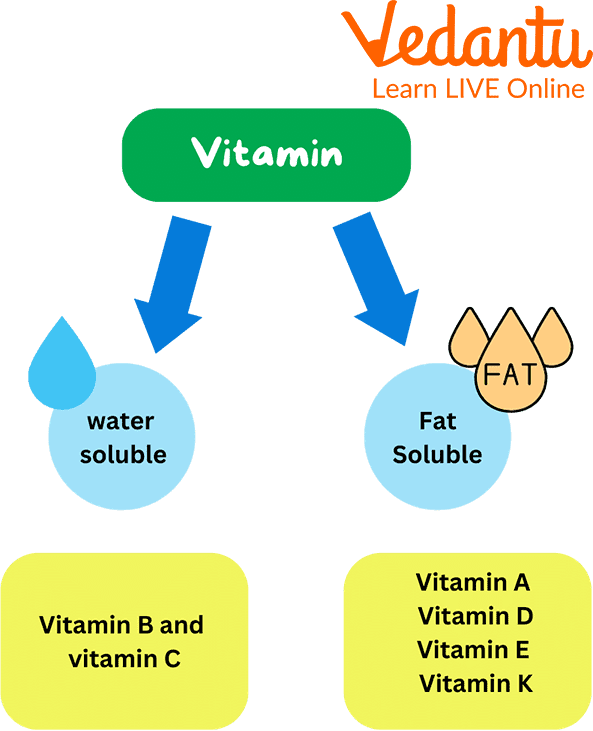




Why Are Minerals and Vitamins Essential for Your Health?
Have you ever heard your mother lecturing you about not eating junk food and eating all the vegetables that are present in your house? If so, in this article we will tell you why it is very important that you stop eating junk and start taking in all the green and colourful vegetables available at your house. All these vegetables and freshly made food are what provide you with all the essential vitamins and minerals that are required by your body to function properly.
Vitamins and minerals are used as essential portions of our diet that our body cannot produce by itself and hence have to be taken from an outside source. In this article, we will also discuss various facts about minerals and vitamins, and also know what food source can provide you with what vitamins and minerals.

Various Vitamins and Minerals
What are Vitamins?
Although our body can fulfil its need itself, it sometimes requires outer sources to get nutrients. For example, our body needs help in getting vitamins from the food that we take. Vitamins are substances that our bodies need to develop and function normally. They include vitamins A, C, D, E, and K, choline, and the B vitamins (thiamin, riboflavin, niacin, pantothenic acid, biotin, vitamin B6, vitamin B12, and folate/folic acid)
Different food items contain different kinds of essential vitamins and minerals that are essential for different functions in our bodies. Therefore, we need to take in food that is full of different vitamins. There can be various deficiencies in one’s body if they do not take their daily vitamins. So let's start looking at the vitamin information first.

Colourful Vegetables
Vitamins as an Important Nutrient
Vitamins and minerals are very essential for our body. They are required for proper growth and also support a good and healthy life. Every vitamin in our food has a particular differential function to perform within the body; for instance, vitamin D is helpful for our bones that are acquired from milk. Another example of essential vitamins will be vitamin A which is acquired from vegetables such as carrots and helps us to maintain good eyesight.
Vitamins are broadly divided into two categories: water-soluble vitamins and fat-soluble vitamins.
Fat-soluble Vitamins
Broadly, when we consume vitamins that are fat soluble, they are stored in the fat tissues or cells in our body or the liver. These vitamins can be stored in the fat tissues for as long as they are not used up by our bodies. There are many examples of vitamins that are fat soluble, for instance vitamin A, vitamin D, vitamin E and Vitamin K are the most common vitamins that are fat soluble in our body.
Water-soluble Vitamins
The other kind of vitamins are water-soluble vitamins. These are different from fat soluble ones as they are easily dissolved in water. Therefore, they cannot be stored in our body and are removed in wastewater and travel through the bloodstream Therefore, it is very essential to replace water-soluble vitamins again and again. Examples of water-soluble vitamins are vitamin C, the group of B vitamins like thiamin, riboflavin B2, niacin and Vitamin B6, biotin, and B12.
All the above information implies the learning of vitamins as an important nutrient.

Types of Vitamins
What are Minerals?
Our earth is full of various kinds of minerals from rocks to the soil in which we grow plants. The basic building block of different rocks, sand, soils and the salt that we eat are minerals. This implies that minerals can be found anywhere from above to below the ground level. Various minerals have been discovered and identified from our earth; for example, gold, silver, platinum, etc. are the most prominent examples of minerals. Among these, some minerals can be found very commonly around us, for example salt, diamond and talc.
Significance of Minerals
Minerals have various roles in different kinds of plants and animals. For example, we humans need minerals like calcium to maintain our bone strength. This in turn implies that we humans need a particular daily requirement of minerals. All animals including us humans acquire their minerals from either plants or animal products like milk, eggs, etc.
Example of Minerals
There are many examples of minerals in food; these include:
Calcium, Phosphorus, Potassium, Sodium, Iodine, Iron, Magnesium
The body also requires other minerals in trace amounts such as selenium, cobalt and molybdenum. These elements are known to have a specific function in the human body.
Function of Minerals
Calcium - Essential for building strong and healthy bones.
Chloride - Maintains proper blood volume, blood pressure, and pH of our body fluids.
Copper - Formation of red blood cells.
Iodine - Promotes the normal functioning of the thyroid gland.
Iron - Helps in transporting oxygen to all parts of the body.
Importance of Vitamin and Minerals
By now, you must have understood the fact that vitamins and minerals are very important for the successful functioning of various systems in our body. Therefore, there is a huge importance of vitamins and minerals for all living organisms from humans to plants. It ensures a healthy and nourished body and mind.
Summary
To conclude this article, we can say that vitamins and minerals are a very essential source of nutrients for all living creatures. The deficiency of vitamins and minerals can cause various problems to the human body and plant bodies. In this article, we looked at various vitamins and minerals that are essential to the human body and also ways by which they impact our bodies.
FAQs on Facts About Minerals and Vitamins
1. What are vitamins and minerals, and why are they called micronutrients?
Vitamins and minerals are essential nutrients that our body needs to function properly, grow, and stay healthy. They are called micronutrients because our body needs them in very small amounts compared to other nutrients like carbohydrates and proteins.
2. What is the main difference between vitamins and minerals?
The main difference lies in their origin. Vitamins are organic substances, which means they are made by plants or animals. We get them by eating these foods. Minerals, on the other hand, are inorganic elements that come from the soil and water. They are absorbed by plants or eaten by animals, which we then consume.
3. What are the two main types of vitamins, with examples?
Vitamins are classified into two main groups based on how they are absorbed and stored in the body:
- Fat-soluble vitamins: These are stored in the body's fatty tissues and liver. Examples include Vitamin A, D, E, and K.
- Water-soluble vitamins: These are not stored in the body for long and any excess is removed through urine. They need to be replenished more frequently. Examples include Vitamin C and the B-complex vitamins.
4. What are some important minerals and the foods we can find them in?
Several minerals are crucial for our health. Key examples include:
- Calcium: Essential for strong bones and teeth. Found in milk, cheese, yoghurt, and leafy greens.
- Iron: Important for making haemoglobin in the blood, which carries oxygen. Found in spinach, apples, and lentils.
- Iodine: Needed for the proper functioning of the thyroid gland. Found in iodized salt, seafood, and dairy products.
5. How do vitamins and minerals work together in the body?
Vitamins and minerals often work as a team to perform functions they cannot do alone. A classic example is the partnership between Vitamin D and Calcium. Vitamin D's primary role is to help the body absorb calcium from the food we eat. Without enough Vitamin D, our body cannot effectively use the calcium to build and maintain strong bones, no matter how much calcium-rich food we consume.
6. Why is a balanced diet better than just taking vitamin pills?
A balanced diet is superior to relying on supplements because whole foods provide a complex package of nutrients that work together. Foods offer fibre, antioxidants, and other compounds that pills cannot replicate. Also, the body is designed to absorb nutrients from food more effectively. Relying only on supplements can lead to an imbalance or an overdose of certain vitamins, which can be harmful.
7. Why can our body store vitamins like A and D, but not vitamins B and C?
This happens because of how they dissolve. Vitamins A and D are fat-soluble, meaning they dissolve in fat and can be stored in our body's fatty tissues and liver for future use. Vitamins B and C are water-soluble, meaning they dissolve in water. Since our body is mostly water, they are used up quickly and are not stored. Any extra amount is flushed out through urine, which is why we need a regular supply of them through our daily diet.
8. What are some health problems caused by a lack of essential minerals?
A deficiency in essential minerals can lead to serious health issues. For example, a lack of iron in the diet can cause anaemia, a condition that results in tiredness and weakness. Similarly, a deficiency of iodine can cause goitre, which is a swelling of the thyroid gland in the neck, and can also impact normal growth and development.









